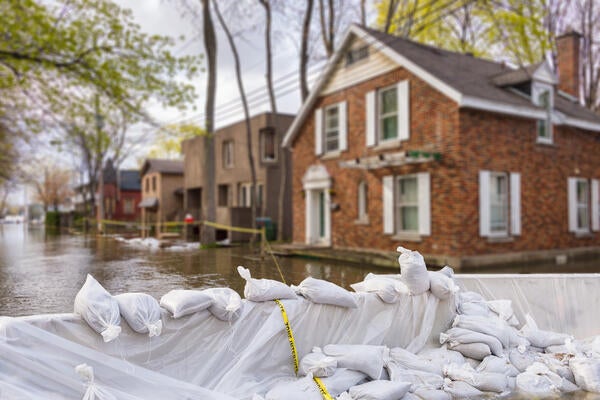
Three key takeaways from the Canada Growth Summit
Waterloo researcher Dr. Mikal Skuterud explains how immigration policy must shift to address productivity needs in Canada

Waterloo researcher Dr. Mikal Skuterud explains how immigration policy must shift to address productivity needs in Canada
By Faculty of ArtsDr. Mikal Skuterud was recently a featured expert at the Public Policy Forum’s Canada Growth Summit 2024 where he discussed what needs to change in immigration policy to address Canada’s productivity challenges.
He shares three key takeaways:
Economic growth research is clear that immigration has the potential to boost labour productivity in the economy. But realizing that potential hinges on our ability to attract and retain the world’s best and brightest minds to raise the average human capital of the population and drive the creation of ideas, knowledge, and innovation.
Unfortunately, our immigration system has become preoccupied with “labour shortages” and plugging holes in lower skilled labour markets. The federal government believes labour shortages are a first-order problem that they need to solve through immigration.
There is a longstanding question about whether immigration should be focused on plugging holes or raising the average human capital of the population. Economists have overwhelmingly argued for the latter approach.

Dr. Mikal Skuterud
Professor, Faculty of Arts
> Director, Canadian Labour Economics Forum
> Research Fellow, Institute of Labor Economics
Economies aren’t machines that fall apart when a cog stops working. Economies are organic systems that have a remarkable capacity to repair themselves. We need to see labour shortages as an opportunity, not as a problem. When there’s excess demand for labour, businesses are incentivized to raise wages and use their workers more efficiently by investing in new technologies. That’s good for workers and for labour productivity.
We need to start trusting competitive markets to address labour shortages through adjustments in the price of labour and the responses of labour demand and supply to those price changes. That’s how capitalism works. If we do that, we can instead focus immigration on creating the jobs and economy of the future.
The immigrant selection system has become a lottery. Migrants deserve transparency when they make their decisions to come to Canada. They need to understand that a study or work permit isn’t a ticket to permanent residency (PR).
My main recommendation for addressing the tension is to radically simplify economic immigration by providing migrants with a single pathway to permanent residency that prioritizes the candidates with the highest expected earnings. We need to get away from ad-hod PR pathway programs and provincial nominations that bypass the Comprehensive Ranking System (CRS) used by Immigration, Refugees and Citizenship Canada (IRCC) to identify the most skilled applicants.
I also recommend that IRCC start publishing permanent residency transition rates and average earnings of graduates by post-secondary institutions. If some schools are consistently producing bad outcomes for the foreign student graduates while others are producing good outcomes, foreign students deserve to have that information.
Caps are blunt instruments. The devil in the details of allocation. Who gets the permits?
I’m working on a project that took me six years to get approval to do. With the help of Statistics Canada, we’ve used aggregate data on University of Waterloo graduates since 2005 and linked their academic outcomes, including grades in different types of courses, with their immigration records and income tax returns. The data show they settle in Canada at twice the national average and their earnings in Canada are impressive.
Yet, foreign student enrolments in bachelor’s programs at the University of Waterloo have been in decline for the past six years. If what you care about is leveraging immigration to boost productivity, leaning on our top universities to attract the world’s best and brightest minds is precisely where our efforts should be focused.
Dr. Mikal Skuterud is a professor of Economics, Director of the Canadian Labour Economics Forum, and a Research Fellow at the Institute of Labor Economics. He serves as the C.D. Howe Institute's Fellow-in-Residence, Roger Phillips Scholar of Social Policy, and is a member of the Human Capital Policy Council.

Read more
To meet our AI ambitions, we’ll need to lean upon Canada’s unique strengths

Read more
Twenty-six researchers receive federal funding to drive discovery, innovation and research infrastructure development

Read more
Waterloo researchers propose solution to help communities escape the costly cycle of flood damage and rebuilding
The University of Waterloo acknowledges that much of our work takes place on the traditional territory of the Neutral, Anishinaabeg, and Haudenosaunee peoples. Our main campus is situated on the Haldimand Tract, the land granted to the Six Nations that includes six miles on each side of the Grand River. Our active work toward reconciliation takes place across our campuses through research, learning, teaching, and community building, and is co-ordinated within the Office of Indigenous Relations.